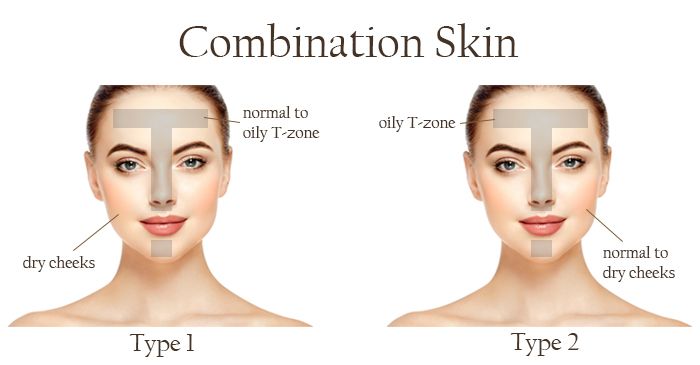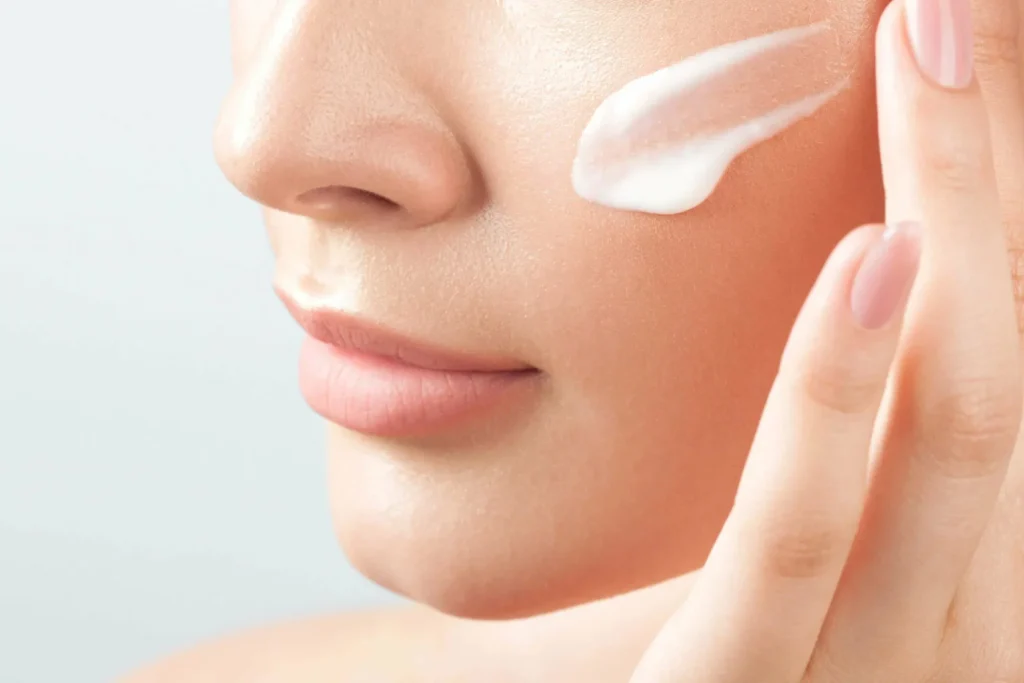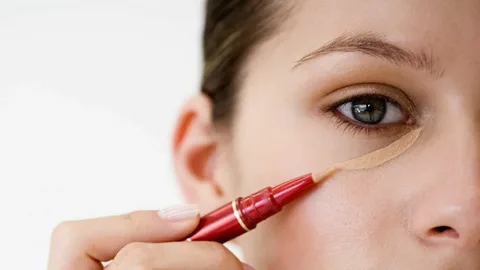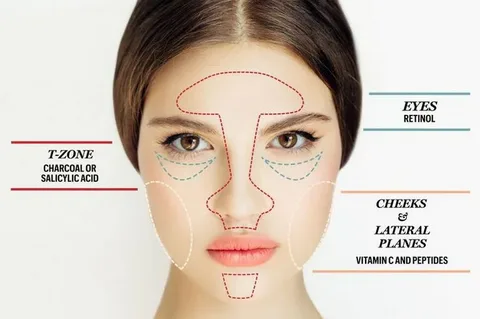If you’ve ever struggled to find makeup that works for both your oily and dry areas, you’re definitely not alone. Combination skin can be tricky to manage, especially when it comes to finding the right makeup products.
Luckily, with the right approach and some insider tips, you can achieve a flawless look that balances both the dry and oily zones of your face.
In this guide, we’ll dive deep into everything you need to know about makeup for combination skin. We’ll cover the best products, techniques, and common mistakes to avoid.
Whether you have a shiny T-zone, dry cheeks, or fluctuating skin throughout the seasons, this post is your go to resource.
Understanding Combination Skin
What is Combination Skin?
Combination skin is exactly what it sounds like a mixture of both oily and dry areas on the face. The most common combination skin pattern involves an oily T-zone (forehead, nose, chin) and drier, sometimes sensitive, cheeks.
People with combination skin often notice that certain products or makeup techniques may work well in one area but fail in another.
While this can be frustrating, understanding your skin type is the first step toward finding the right makeup routine.
Causes of Combination Skin
Combination skin is influenced by several factors, such as genetics, hormonal fluctuations, diet, and skincare habits.
For example, stress, diet, and certain medications can increase oil production in the T-zone, while changes in weather can cause the skin on your cheeks to dry out.
Moreover, skincare products that are too harsh or not suitable for your skin type can also contribute to the imbalance.
How Combination Skin Affects Makeup
Makeup can either accentuate or balance out the characteristics of combination skin. The challenge is finding products that hydrate dry areas without making the T-zone greasy.
It’s also important to use the right tools and application techniques to keep makeup from looking patchy, cakey, or too shiny.
Prep Your Skin for Makeup: The Right Skincare Routine
Before diving into makeup application, it’s essential to prepare your skin. Here’s how to set the stage for flawless makeup.
Cleansing
When you have combination skin, the key is to use a gentle, non stripping cleanser. Look for a product that cleans without overly drying out the skin or causing your oil glands to overcompensate.
A sulfate free cleanser is a great option, as it cleans effectively without disrupting your skin’s natural balance.
Best Cleansers for Combination Skin:
- CeraVe Foaming Facial Cleanser
- Neutrogena Hydro Boost Water Gel Cleanser
Exfoliation
Exfoliating your skin 1-2 times a week helps to remove dead skin cells, preventing buildup in both dry and oily skin areas. When you exfoliate, you smooth out the skin’s texture, ensuring makeup glides on easily.
However, be cautious not to over exfoliate, as this can leave dry patches or irritate the skin.
Top Exfoliants:
- Paula’s Choice Skin Perfecting 2% BHA Liquid Exfoliant
- The Ordinary Glycolic Acid 7% Toning Solution
Toning
A good toner helps restore the skin’s pH balance. For combination skin, look for a hydrating or balancing toner.
If your skin tends to be more oily, opt for a toner with a mild astringent like witch hazel for the T-zone. For the dry areas, choose hydrating formulas with glycerin or rose water.
Best Toners:
- Thayers Witch Hazel Toner
- Kiehl’s Calendula Herbal Extract Alcohol Free Toner
Moisturizing
Moisturizing is crucial for all skin types. For combination skin, use a lightweight, oil free moisturizer for your T-zone and a richer moisturizer for your cheeks or any dry areas.
This will hydrate your skin without overwhelming your oily zones.
Best Moisturizers for Combination Skin:
- Clinique Dramatically Different Gel
- Neutrogena Hydro Boost Water Gel
Priming
Priming before makeup is essential for combination skin. The goal is to create a smooth base that will help your makeup last longer and blend more evenly.
A mattifying primer for the T-zone will control excess shine, while a hydrating primer for dry areas ensures the skin stays moisturized.
Prime Your Skin with Two Types of Primers:
- T-zone (Mattifying Primer): Smashbox Photo Finish Mattify Primer
- Dry Areas (Hydrating Primer): Too Faced Hangover Primer
Choosing the Right Makeup Products for Combination Skin
Foundations: Strike the Right Balance
When choosing foundation for combination skin, you’ll want a formula that can handle both your oily T-zone and dry cheeks. Look for oil free, buildable foundations with a natural finish.
Full coverage foundations may be too heavy for the dry spots, while dewy foundations can make the T-zone look greasy. Aim for long lasting, matte foundations that won’t cling to dry patches.
Best Foundations for Combination Skin:
- Fenty Beauty Pro Filt’r Soft Matte Longwear Foundation
- Estée Lauder Double Wear Stay in Place Makeup
- Maybelline Fit Me Matte + Poreless Foundation
Concealers: Covering Imperfections Without Caking
For concealing under eye ci
rcles or blemishes, choose a medium coverage concealer that blends well without being too thick.
Avoid heavy or full coverage formulas that might highlight dry patches. A hydrating concealer will work best for combination skin.
Best Concealers for Combination Skin:
- Tarte Shape Tape Concealer
- NARS Radiant Creamy Concealer
Powders: Matte Without the Dryness
For combination skin, a setting powder is essential to lock in your makeup, especially in the T-zone. Look for lightweight, translucent powders that control shine without emphasizing dryness.
Loose powders tend to be more forgiving for dry skin, while pressed powders can offer more control for oily areas.
Best Powders for Combination Skin:
- Laura Mercier Translucent Loose Setting Powder
- MAC Mineralize Skin finish Natural Powder
Tips for Applying Makeup to Combination Skin
Layering for Balance
When you have combination skin, layering makeup products is key. Apply your makeup in thin layers, focusing on areas that need more coverage.
For instance, you might want more foundation in your T-zone and just a light layer on your dry cheeks. Layering helps ensure the product doesn’t sit too heavily on dry patches or cause excessive shine in oily areas.
Blending Techniques
Blending is critical for combination skin, as makeup can easily settle into dry patches or appear streaky on oily skin.
Use a damp makeup sponge to apply foundation, as it helps evenly distribute the product and prevent streaks. For concealer, use a brush or your fingers for more precision.
Avoiding Patchiness
Patchiness can occur when the skin gets too dry or oily. For the T-zone, avoid using too much powder, which can create a cakey finish.
Instead, focus on setting specific spots like the nose and forehead. For dry areas, make sure your foundation and concealer are well hydrated to prevent the makeup from clinging to flaky patches.
Makeup for Specific Areas of the Face
T-zone
For the oily T-zone, stick to matte formulas that absorb excess oil without making the rest of your face feel tight.
Use a mattifying primer before foundation, and apply a light dusting of setting powder to your T-zone throughout the day.
Products to Control Shine:
- Blotting Papers: Clean & Clear Oil Absorbing Sheets
- Mattifying Setting Spray: Urban Decay All Nighter Setting Spray
Cheeks
For dry cheeks, use hydrating foundations and avoid powders that can emphasize flakiness. Cream blushes, highlighters, and bronzers work best for dry skin, as they provide a dewy finish without settling into fine lines.
Best Products for Dry Cheeks:
- Cream Blush: Glossier Cloud Paint
- Hydrating Highlighter: Becca Shimmering Skin Perfector
Eyes and Lips
When dealing with combination skin, your eyes and lips should complement the rest of your makeup.
Cream eyeshadows tend to work well for dry areas, while matte shadows are great for the T-zone. For lips, a moisturizing formula keeps your lips hydrated and smooth.
Best Eye and Lip Products for Combination Skin:
- Eye Shadow: Urban Decay Naked Heat Palette
- Lip Balm: Fresh Sugar Lip Treatment SPF 15
Best Makeup Products for Combination Skin
Here’s a list of some of the most popular and effective makeup for combination skin:
| Product Type | Recommended Products |
| Foundations | Fenty Beauty Pro Filt’r, Estée Lauder Double Wear |
| Concealers | Tarte Shape Tape, NARS Radiant Creamy Concealer |
| Setting Powder | Laura Mercier Translucent, MAC Mineralize Skinfinish |
| Primers | Smashbox Photo Finish Mattify, Too Faced Hangover |
| Blushes/Highlighters | Glossier Cloud Paint, Becca Shimmering Skin Perfector |
Mistakes to Avoid When Applying Makeup on Combination Skin
Overloading on Powder
Using too much powder on your entire face can highlight dry patches. Instead, focus on the T-zone or areas that tend to get oily.
Ignoring Dry Patches
Make sure to hydrate dry areas properly before applying makeup. Skipping this step can result in patchy makeup that clings to dry spots.
Using Only One Primer
If you’re dealing with combination skin, use different primers for different areas. A mattifying primer for your T-zone and a hydrating primer for your cheeks will give you a more balanced finish.
Skipping Touch Ups
Combination skin needs touch ups throughout the day to maintain the makeup’s longevity. Keep blotting papers and a setting spray on hand to keep your makeup fresh.
How to Maintain Makeup for Combination Skin Throughout the Day
Setting Your Makeup Properly
Make sure to lock in your makeup with a good setting powder and spray. This will help maintain your makeup’s integrity throughout the day without it fading or melting off.
Touch Ups on the Go
Having a compact powder, setting spray, and blotting papers in your bag ensures you’re ready to freshen up throughout the day without looking cakey.
Staying Matte Without Drying Out
Refresh your makeup with a setting mist or hydrating spray to keep your skin looking fresh while controlling oil and preventing dryness.
Conclusion
Mastering makeup for combination skin is all about balance. By understanding your skin’s needs and using the right products, you can achieve a flawless finish without the frustration of patchiness or excessive shine.
Experiment with different techniques and products to see what works best for your unique skin type.
Remember to prep properly, choose hydrating and mattifying products, and don’t forget to touch up throughout the day for a look that lasts.
FAQs
- How do I choose the right foundation for combination skin?
Look for foundations with a natural or matte finish that are long wearing and oil free. Buildable formulas like Fenty Beauty Pro Filter work great. - Can I use powder on combination skin?
Yes, but use a light hand. Focus on setting only the oily areas of your face, such as the T-zone. - What is the best primer for combination skin?
Use a mattifying primer for the T-zone and a hydrating primer for dry areas like the cheeks. - How do I avoid makeup from looking cakey?
Layer your products lightly and blend well. Use a damp sponge to avoid heavy layers. - How do I keep my makeup fresh all day?
Regularly touch up with blotting papers and setting sprays to control oil and maintain hydration.





